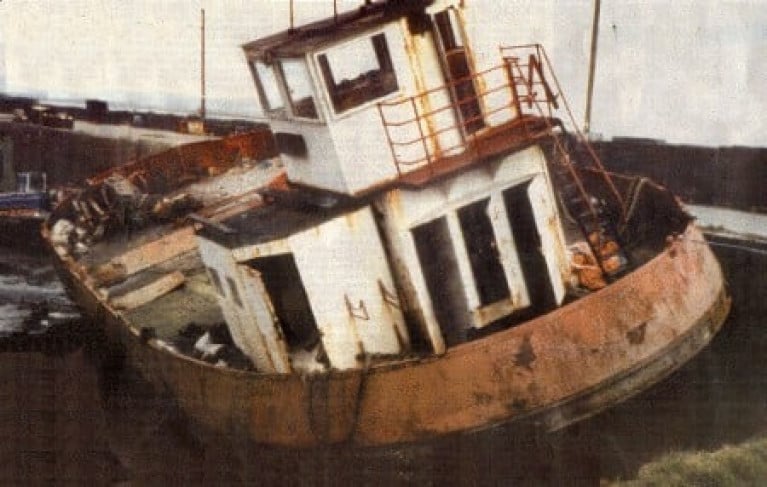Displaying items by tag: Wrecked ferry
If Tim Ryan could be transported back to any time in his life it would undoubtedly be the hours he spent on the ferries crossing the Severn to England and back. He did it 11 or 12 times a year with his parents and sister - and each journey was as adventurous as the last.
“It was just like going abroad,” the 67-year-old retired headteacher told WalesOnline from a quiet corner of Wales where he is hellbent on recreating those memories for future generations. It’s been a 23-year mission which is now finally beginning to bear fruit.
“My father had a sister in Burnham-on-Sea and my mother was from Wiltshire, so we were on the ferries a lot,” he said, proudly standing aboard the Severn Princess which has found its way home in remarkable circumstances.
It now sits beneath Brunel's rail bridge just metres from where it used to be moored on the River Wye from 1959 to 1966. The Princess - alongside the Severn King and Queen - offered the only means of crossing for motorists before the construction of the M48 Severn bridge.
Now we’ve got the ferry here I’d hope the long-term plan would be to get the bridge all cleaned up and maybe a visitors centre here. There’s a long way to go.”
For Tim, now coordinator of a modest team which makes up the Severn Princess Preservation Trust, it has been a labour of love long in the making. “One of our members Richard Jones is the grandson of Enoch Williams,” Tim said. “Enoch was the owner of the Old Passage Severn Ferry Company and operated the three ferries.
For much more on the former river ferry's fascinating journey to home waters, click here.
In addition, according to Wikipedia, the wrecked vessel was found full of fertiliser, having been discovered in 1999 by Dr. Richard Jones, as alluded above.
The derelict ferry had been put under a demolition order by Galway County Council, however the Severn Princess Restoration Group was set up urgently so to save and acquire the ferry for a guinea.
After repairs this enabled a five-day tow across the Irish Sea to Beachley that took place in 2003.





























































